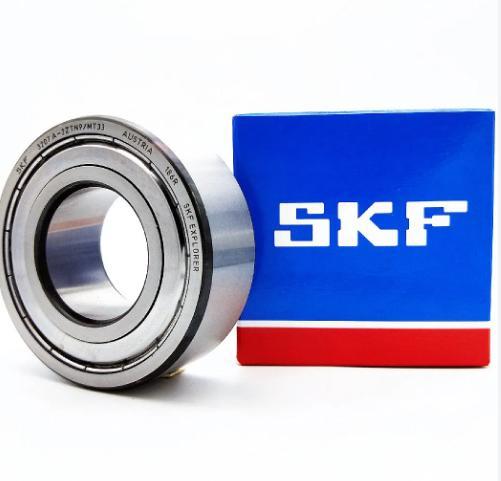Welcome to the official website of Jinan Qinzhou Bearing Co., Ltd.
Email:jnds@arjgbearing.com Email:nskkoyo@fryzc.com
-
-
Products
-

04
2025
-
08
Understanding Angular Contact Ball Bearings: Key Features and Applications
Angular contact ball bearings are integral components in many industrial applications. Their unique design allows them to manage complex load distributions, making them ideal for high-performance environments
Angular contact ball bearings are specialized types of bearings designed to support both radial and axial loads. Unlike standard deep groove ball bearings, angular contact ball bearings are constructed with a unique design that allows them to accommodate higher speeds and more complex load distributions. This makes them particularly valuable in industrial applications where precision and reliability are paramount.
One of the defining features of angular contact ball bearings is their raceway geometry, which is angled about the bearing axis. This specific design allows the bearings to handle axial loads in one direction, providing a greater load-carrying capacity. The angle can vary, influencing the bearing's ability to support combined loads. The most common contact angles for angular contact ball bearings are 15, 25, and 40 degrees; each angle serves a particular application based on the load and speed requirements.

Angular contact ball bearings are widely used in applications requiring high-speed operation and precision, such as in electric motors, pumps, and machine tools. Their ability to operate efficiently under high-speed conditions makes them a popular choice in manufacturing and production environments. Additionally, these bearings are often used in pairs or sets to manage loading in both directions, enhancing their versatility and effectiveness in various setups.
Another important aspect to consider is the lubrication of angular contact ball bearings. Proper lubrication is essential for reducing friction and wear, ultimately extending the lifespan of the bearings. Manufacturers typically recommend specific types of lubricants based on the operating environment and load conditions. Regular maintenance, including monitoring lubricant conditions and replacing it when necessary, is crucial for optimal performance.
When selecting angular contact ball bearings for your application, it is vital to consider factors such as load rating, speed capability, and environmental conditions. Consulting with experts in bearing technology can provide valuable insights tailored to your specific needs. This ensures that the right bearing size, type, and configuration are chosen, maximizing efficiency while minimizing potential failures.
Angular contact ball bearings are integral components in many industrial applications. Their unique design allows them to manage complex load distributions, making them ideal for high-performance environments. By understanding their features, benefits, and maintenance requirements, you can make informed decisions that enhance your machinery's reliability and efficiency.
Related news
Contact
Address:Mingzhu Business Mansion, No.88 of JingYi Road, Jinan City, Shandong Province, China, 250000
Sales Department:
Email:jnds@arjgbearing.com
Email:nskkoyo@fryzc.com
WhatsApp :+86-18863000497
Wechat:+86-18863000497


All rights reserved ©2024 Jinan Qinzhou Bearing Co., Ltd. SEO Business license

